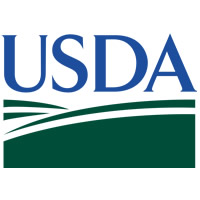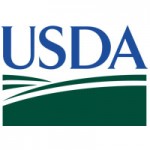The USDA National Institute of Food and Agriculture (NIFA) has announced a $262.5 million investment to foster the next generation of diverse agricultural professionals across the nation. This program is funded by President Biden’s Inflation Reduction Act, which aims to lower costs for American families, expand access to markets to producers from all backgrounds and communities, build a clean energy economy and strengthen American supply chains. The $262.5 million investment will provide training and support to more than 20,000 future food and agricultural leaders through 33 project partners.
“Each generation of agricultural professionals faces new challenges as we feed our world’s growing population, and the future generations give me hope that we will rise to the occasion to meet these challenges with opportunity,” said Agriculture Secretary Tom Vilsack. “We need to ensure our youth have the education and training they need to accelerate the development of an agricultural system that is climate-smart, sustainable, profitable and equitable. This historic investment from the Biden-Harris Administration in our nation’s Minority-serving Institutions brings us closer to building a workforce that represents the richness and diversity of all the communities we serve.”
“From Learning to Leading: Cultivating the Next Generation of Diverse Food and Agriculture Professionals Program” (NextGen) will enable eligible institutions of higher learning to build and sustain the next generation of food, agriculture, natural resources and human sciences workforce. This includes efforts to strengthen USDA’s workforce through enhanced educational support, experiential learning and exposure to early career opportunities. Eligible institutions include: 1890 Land-grant Universities, 1994 Tribal Colleges and Universities, Hispanic-serving Institutions (HSI), Alaska Native-serving and Native Hawaiian-serving Institutions and institutions of higher education located in the insular areas, as well as their partners.
“The vision we have at NIFA is to feed and nourish all Americans and create economic opportunity for more American families. Equity and diversity are the two central elements in this vision. One goal of the NextGen program is to identify, inspire and prepare our youth, particularly in underrepresented communities, to be the next generation of hunger fighters and agricultural problem solvers. This is the right thing to do and the right time,” said NIFA Director Dr. Manjit Misra.
Each project will be funded for a period of five years. Examples of awarded projects include:
1994 Tribal Land-grant Institutions
Fond du Lac Tribal and Community College’s project is a collaborative effort between Fond du Lac Tribal and Community College and Leech Lake Community College, bringing together two 1994 Land-grant Colleges to build sustainable educational and experiential systems to prepare Tribal college students to enter agricultural and STEM workforces. ($9 million)
Hispanic-serving Institutions
Luna Community College (LCC), a Hispanic-Serving Institution in Las Vegas, New Mexico, will implement the Luna Initiative for Food, Agriculture, Natural Resources and Human Sciences (FANH)Training and Education (LIFTE) Project, which will address recruitment, enrollment and retention issues of students pursuing academic degrees or noncredit training programs in the Luna Agriculture and Natural Resource Development Center. LIFTE will also expand its training of FANH professionals to increase the workforce required to restore, re-build and re-invigorate forests, farm/range lands and waterways catastrophically damaged during the worst wildfire in New Mexico history, which occurred within LCC’s serving area in the summer of 2022.
1890 Historically Black Land-grant Institutions
North Carolina A&T State University in Greensboro, North Carolina, in partnership with Tuskegee University, University of Arkansas at Pine Bluff, Virginia State University, Florida A&M University, Fort Valley State University, University of Maryland at Eastern Shore, and North Carolina State University will implement the “System Approach to Promote Learning and Innovation for the Next GenerationS (SAPLINGS)” of Professionals and Leaders in Food, Agriculture, Natural Resources, and Human Sciences program with a goal of training 6,134 grade 5-12 students, 326 grade 5-12 educators, and 5,871 college students; reach 980 families; engaging more than 30 partners; and enhancing underrepresented minority student enrollment, retention, and graduation rates at 1890 LGUs to grow the next generation of diverse workers, leaders, and innovators for food, agriculture, natural resources and human sciences (FANH) careers.
To track and report the benefits and impacts of the NextGen program, NIFA is partnering with the Intercultural Development Research Association. In addition to this effort, USDA announced the release of two new public dashboards allowing users to access high-level data about agricultural research funding investments and applicants to track the status of their grant applications.







